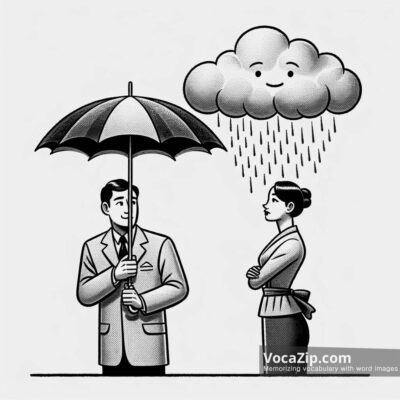expect meaning
expect :
to think, to believe
verb
▪ I expect it to rain tomorrow.
▪ I think it will rain tomorrow.
▪ She expects a call from her friend.
▪ She believes her friend will call.
paraphrasing
▪ anticipate – to think ahead
▪ predict – to say what will happen
▪ foresee – to see the future
▪ assume – to take for granted

Pronunciation
expect [ɪkˈspɛkt]
The stress is on 'spect' and sounds like 'ik-spekt'.
Common phrases and grammar about expect
expect - Common meaning
verb
to think, to believe
Part of Speech Changes for "expect"
▪ expectation (noun) – belief about the future
▪ expected (adjective) – thought to happen
Common Expressions with "expect"
▪ expect a result – to think of a result
▪ expect the worst – to think the worst will happen
▪ expect a call – to think someone will call
▪ expect a visitor – to think someone will visit
Important examples of expect in TOEIC
Vocabulary examples from the TOEIC test
In TOEIC vocabulary questions, expect is often used to indicate anticipation of events or outcomes.
Example of a confusing word: except (to exclude)
Grammar examples from the TOEIC test
Expect is commonly used as a verb with an object, and it often appears in questions about predicting outcomes.
expect
Idioms and fixed expressions in TOEIC
expect the unexpected
means 'be ready for surprises', often used to prepare for unforeseen events.
expect too much
means 'to have unrealistic hopes', used when someone has high and possibly unrealistic expectations.
Differences between similar words and expect
expect
,
anticipate
differences
Expect is used for general belief or thought about the future, while anticipate is more about preparing for something.
expect
,
predict
differences
Expect is used for a general belief, while predict is used for a more specific and calculated forecast.
Words with the same origin as expect
The origin of expect
expect comes from the Latin 'exspectare', which means 'to look out for' or 'to await'.
Word structure
It has the prefix ex (out), root spect (look), and means 'to look out for'.
Words with the same origin
The root of expect is spect (look). Words with the same root include inspect (to look at closely), respect (to look back), suspect (to look under).







